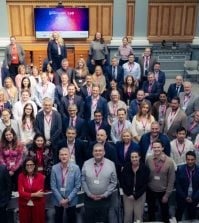UK government identity system still poses risk

The Verify identity verification programme continues to pose “notable risks” to the Cabinet Office due to challenges in delivery, according to the department’s annual report and accounts.
The programme provides a common citizen identity assurance for departmental services, enabling complex and risky transactions, such as financial transactions or where personal data is being shared, to go online.
It was launched in 2011 by the Government Digital Service (GDS), with initial funding of £10m ($13m), but encountered resistance from several key departments including HM Revenue and Customs, which did not want to use it due to repeated technical problems experienced by citizens trying to register for the service.
In 2018, the government announced that it would no longer provide public funding for the service after April 2020, and that it would transition to a private-sector led model.
Demand surge
However, the Covid-19 pandemic led to unprecedented use of online services using digital identity, including a 900 per cent increase in demand for identities in order to access financial support through the Universal Credit scheme. In response, the chief secretary to the Treasury approved funding for the Cabinet Office to extend operations for up to a further 18 months, the report noted.
“The Verify identity verification programme has continued to pose notable risks to the department due to challenges in delivery,” the Cabinet Office annual report stated. “To manage this, the commercial models team have provided additional support, and intensive engagement is underway with identity providers to develop a refreshed commercial framework.
It added: “GDS continues to work very closely with these providers and the Department for Work and Pensions to respond rapidly to the unprecedented Covid-19-driven demand for Verify services and capacity was increased rapidly in the second half of March 2020.”
Unlocking technology
Meanwhile, the government has launched a new pilot digital identity checking service. The trial will last around a year and should provide a quicker service for people needing to access online services, such as mortgage applications and other financial services, and who previously had to undergo in-person processes to verify their identities, the Cabinet Office said.
It will also make it cheaper for organisations by enabling them to move their identity proofing processes online, it added.
Cabinet Office minister, Julia Lopez, said: “The Document Checking Service pilot provides an opportunity to establish how the government and private sector might work together for the convenience of the citizens we serve.
“It will help us learn how we can help citizens and businesses access online services by verifying a person’s identity more safely and easily, unlocking the huge potential of technology to improve our everyday lives.”
The Document Checking Service will be run by the GDS and will allow a small number of approved organisations to digitally check a person’s passport data to speed up application processes.
An individual must first consent to having their data verified in this way. No organisation will be given access to government-held data, and the organisation checking the ID will simply receive a ‘yes or no’ answer confirming whether the document provided is valid.
Up to eleven organisations have been selected to be part of the pilot from a range of sectors.























